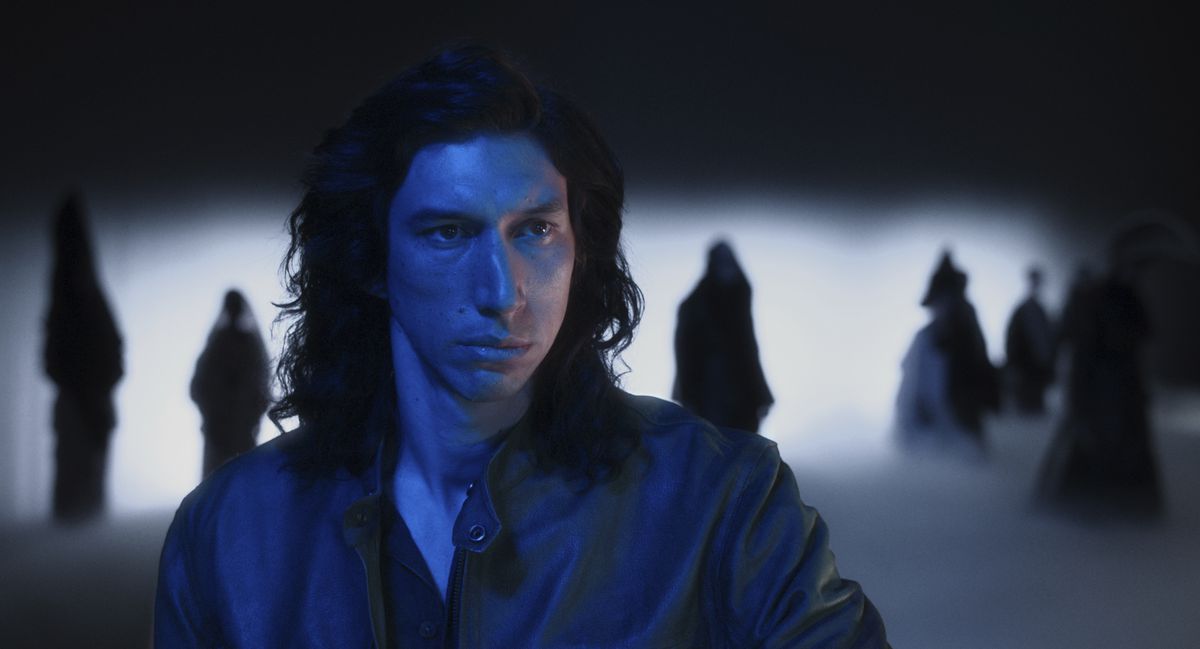If you’re looking for something different, Annette is an avant-garde musical about a celebrity couple—renowned opera soprano Ann Defrasnoux and in-your-face comedian Henry McHenry, known on stage as the “the Ape of God”—giving birth to a horrifying marionette baby who can sing with her mother’s voice. The screenplay and music were written by Sparks, a sibling pop/rock duo whose lyrics were once described by LA Weekly as “seesawing between superficial gloss, profound sentiment and the incomprehensibly bizarre”, which could also apply to Annette. Experimental French filmmaker Leos Carax co-writes and directs in his English-language debut, with Adam Driver and Marion Cotillard starring. You already know whether you’re interested.
READ ALSO: Review: ‘Marriage Story’ is an unmissable 5-star film
The film opens with a message from Carax: quiet down, silence your phones, and maybe consider not farting or breathing for the duration of the show. It’s a friendly reminder not to take any of this too seriously—if this gonzo farce is mistaken for highfalutin posturing, the whole thing falls apart. Annette is supposed to be as funny as it is weird. And is it ever weird: from opening number “So May We Start”, which sees the film’s stars excitedly bopping down the sidewalk with the Sparks brothers, the thing is a ludicrous, esoteric burlesque of rock opera proportions.
The musical is a fitting medium for Carax, as it allows him to engage in constant, heart-on-sleeve self-reference without feeling out of place. In Annette’s case, though, it’s more like brain-on-sleeve—what does the movie have on its mind? It’s hard to single that out amid the ballet of bizarre, but Carax choreographs some pointers into the dance. The nature of performance, a major theme of the director’s previous film Holy Motors, is at the forefront again: after the opening number, we’re treated to a musical comedy act from the Ape of God himself, Henry McHenry. The man’s set is brash, brusque, braggadocious yet self-deprecating; he prances about on stage in a green boxing robe, brandishing the mic with the self-aware energy of Bo Burnham while delivering the dark, borderline tasteless material of Louis C.K—a comparison cemented by allegations of abuse in Henry’s past. But despite the messiness of the act and the figure at its forefront, the audience eggs Henry on, interjecting in his song like a chorus hungry for more. Cinematographer Caroline Champetier doesn’t shoot the audience like the DP of a comedy special would, cutting variously to individual reactions—instead, she captures the audience as if it were a hivemind, a throng of faces in shot-reverse-shot interplay with Henry alone on the stage. The relationship between performer and audience is on Annette’s mind.
Henry’s parasitic, self-mythologizing connection to his fans is contrasted with his wife’s work. An opera singer, Ann spends every night dying on stage, unable to see the faces staring at her from the dark—she dies for her audience with nothing in return. When Henry picks her up from a performance, she asks him how his set went: “I killed them. Destroyed them. Murdered them,” Henry mumbles. “I saved them,” Ann responds. Henry wants to kill it; Ann wants to die for her art. From one way of looking at things, the unsettling puppet baby they create—talent outside, hollowed out inside—is the bastard child of these dissimilar approaches to fame. The consequence is Henry capitalizing on his daughter’s voice, pulling strings to sell the masses a living, breathing soundbite of Ann. Annette is a bonkers parable of fame in the TikTok era.
It’s not as propulsive as it could be, failing to match the verve of your average musical or even of Carax’s past work. Much of the music is sung with a talky modulation, which counts among the film’s comical idiosyncrasies but doesn’t quite sweep you off your feet. But what Annette is lacking in wonder, it makes up for in bewilderment, disarming the viewer with big ideas rendered on the most unapologetically strange canvas possible. Any lingering confusion is worth waiting out for the final scene, which drops the central allegory and hits you with that “profound sentiment” of Sparks’ music. It really feels like the finale of a rock opera, closing out the grandiosity and glitz with an intimate reminder of who’s left behind in the business of art. You may find yourself holding your breath even when the show is over.
★★★★ (4/5)




